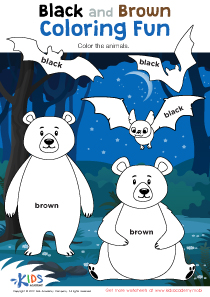Spelling practice English for Beginners Worksheets for Ages 3-4
6 filtered results
-
From - To
Discover our engaging spelling practice worksheets designed specifically for English beginners aged 3-4. These fun and interactive resources help young learners build foundational spelling skills through colorful illustrations and simple activities. Perfect for parents and teachers, our worksheets aim to enhance vocabulary, phonetics, and word recognition while keeping early learners entertained. Each activity is tailored to suit the developmental levels of preschoolers, making learning an enjoyable experience. Foster your child's confidence in spelling with our easily accessible printable worksheets, available for immediate download. Start your child’s journey to literacy today and watch their love for language grow!
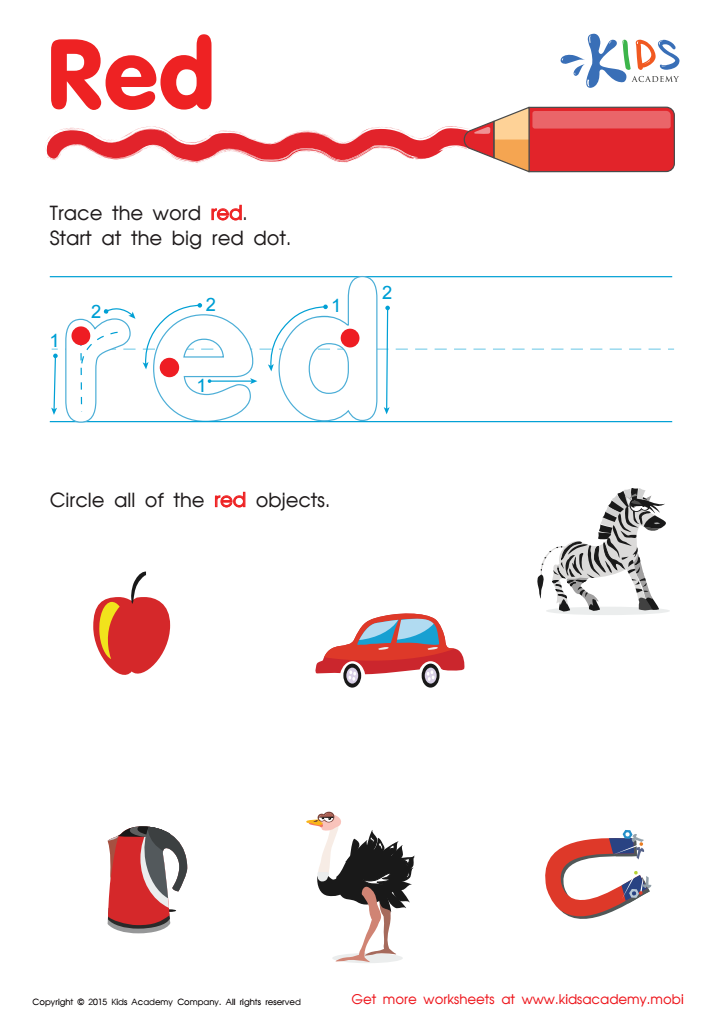

Red Tracing Color Words Printable
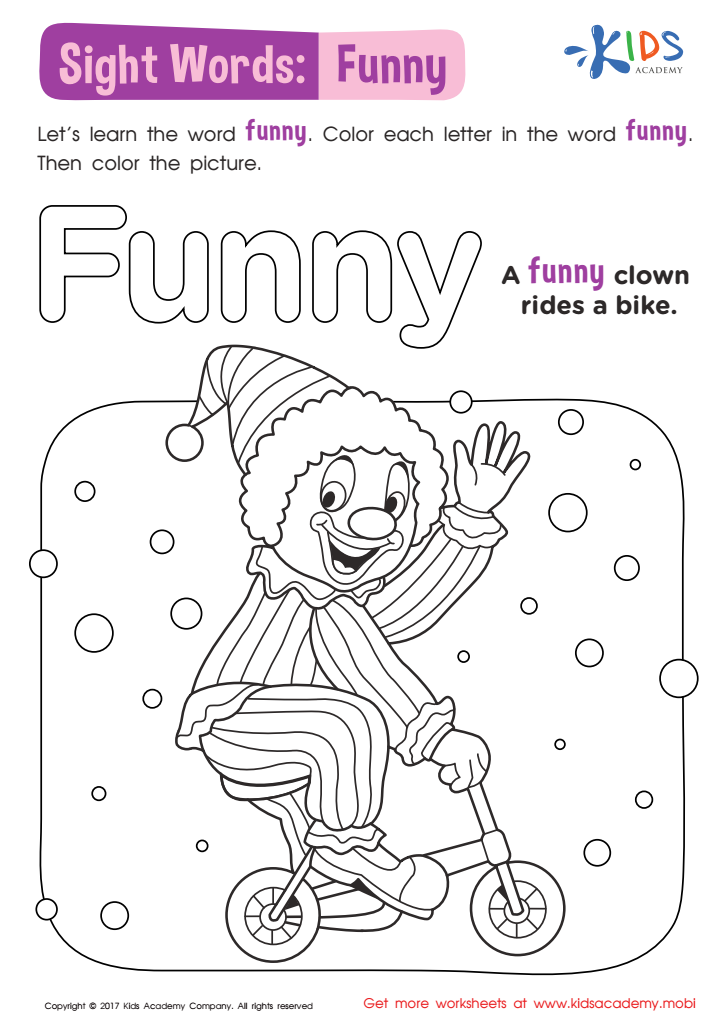

Funny Worksheet Sight Words Worksheet
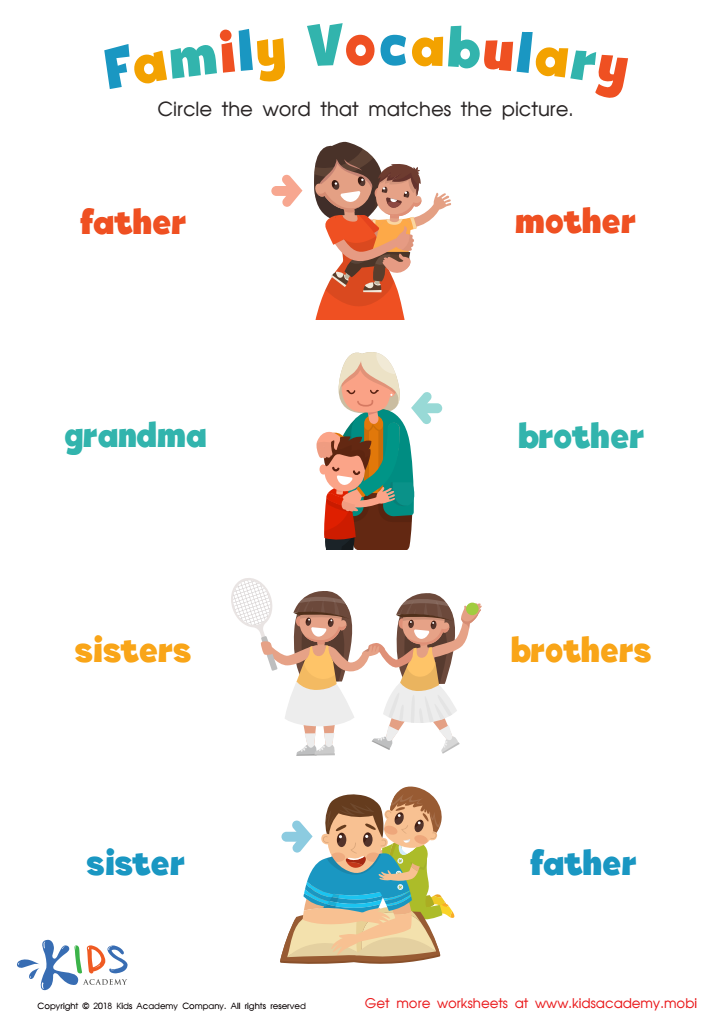

Family Vocabulary Worksheet
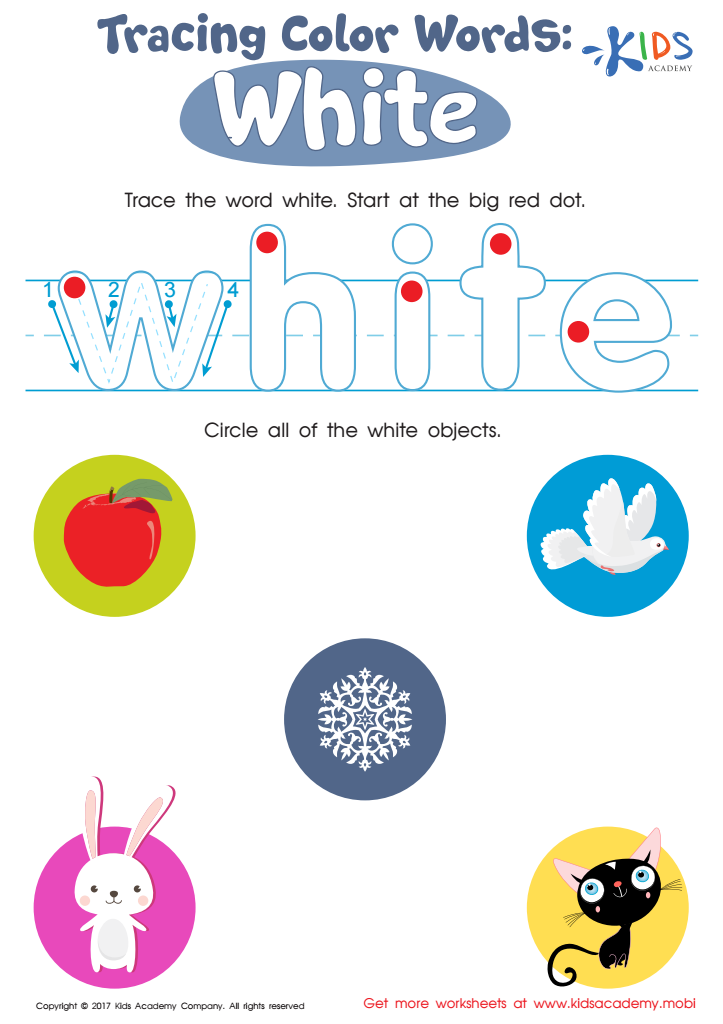

White Tracing Color Words Worksheet
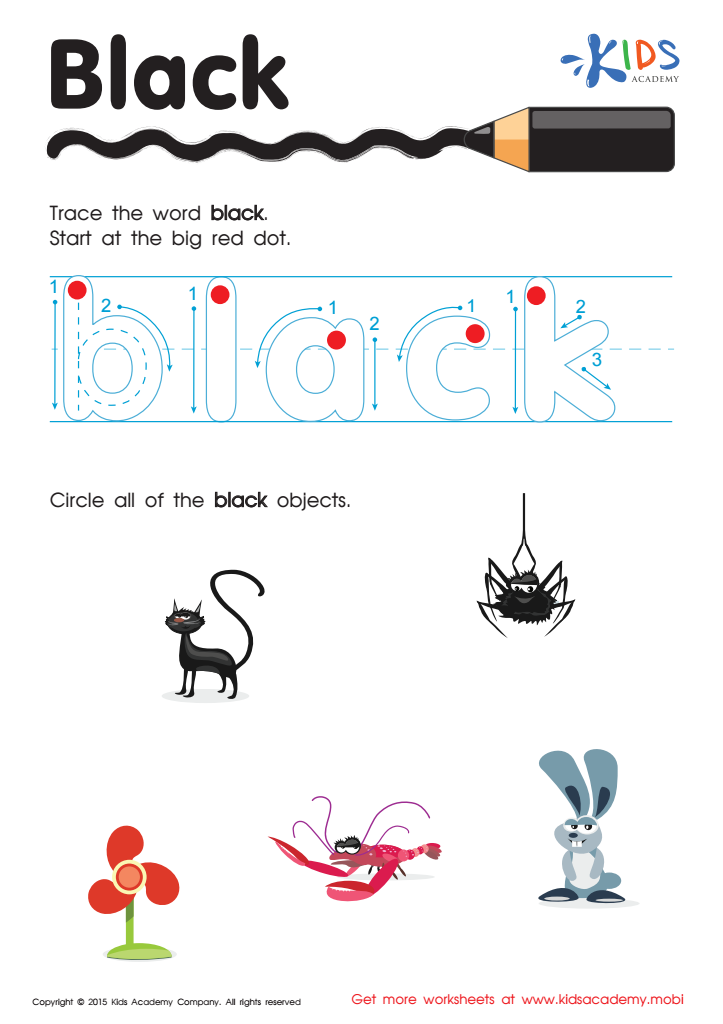

Black Tracing Color Words Printable
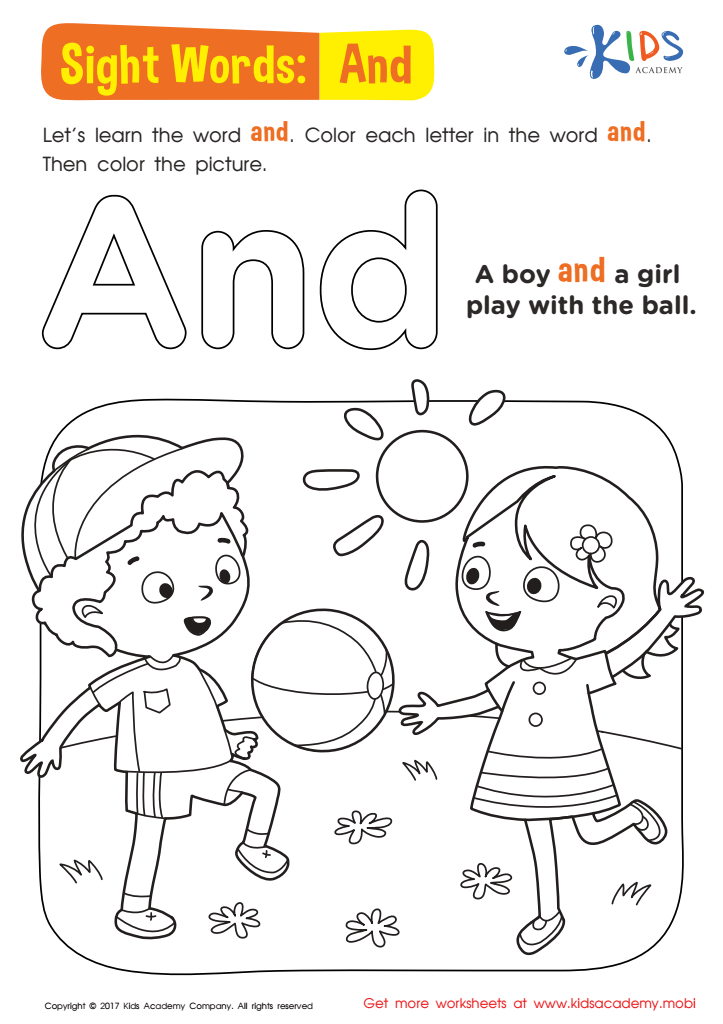

And Worksheet Sight Words Worksheet
Spelling practice for English beginners aged 3-4 is crucial for several reasons. First, it establishes a strong foundation for language development at an early age. During these formative years, children's brains are highly receptive to language acquisition; introducing spelling can help them connect sounds with letters, a fundamental skill in reading and writing.
Second, early spelling practice enhances vocabulary skills. By learning to spell new words, children expand their language repertoire, which boosts their confidence and encourages them to express themselves more effectively. Through engaging activities like phonics games and interactive storytelling, children develop a love for learning.
Moreover, spelling practice promotes fine motor skills. Writing letters and words helps strengthen the small muscles in their hands, improving their dexterity and preparing them for more complex tasks in school.
Finally, consistent practice fosters a positive attitude towards academic challenges. When children grasp spelling concepts early on, they feel a sense of accomplishment and are more likely to tackle future learning opportunities with enthusiasm. Both teachers and parents play an essential role in creating a supportive environment, reinforcing the importance of spelling, and helping children thrive in their educational journey.
 Assign to My Students
Assign to My Students










